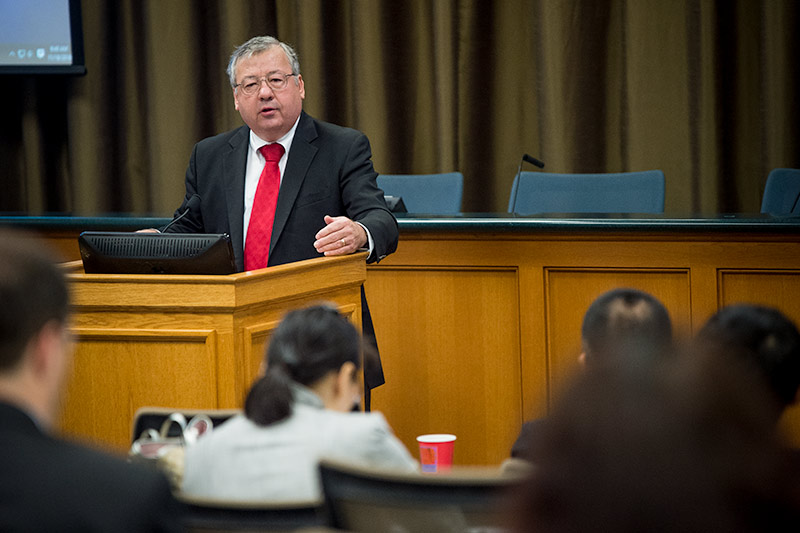Tulane Energy Institute co-hosts forum on US-China relations

The Donald Trump administration is likely to seek mutually beneficial deals between the United States and China but will press for more trade balance, a top U.S. energy representative said during a day-long forum at Tulane University examining relations between the two nations.
“I think you’re going to find that President-elect Trump will be very eager to have a positive relationship with China,” said Barry K. Worthington, executive director of the United States Energy Association. The association is the U.S. member of the World Energy Council, the United Nations’ energy body.
He said he expects Trump to “take a very tough line in trade negotiations” but seek fair and open agreements.
Worthington predicted that, in four years, “you’re going to see U.S.-China trade in a better place than it is now.”
The forum explored regulatory considerations, the future of nuclear power, competing visions on trade, globalism, relations between Louisiana and China and other issues. The Tulane Energy Institute at the A. B. Freeman School of Business and Tulane Law School co-hosted the event, which was made possible by a gift from retired engineering Professor S.T. Hsieh, founding director of the EETC and a leader in developing Tulane initiatives in China.
Tulane Law Dean David Meyer said the discussion was especially timely because the presidential election had raised “gaping new questions” about issues including the Trans-Pacific Partnership, climate change, security decisions and other areas of trade and energy law.
Li Bin, counselor for economic affairs at the Chinese Embassy in the United States in Washington, D.C., told the group that China’s energy development “still faces many challenges,” such as increasing strain on supply and coping with environmental damage.
But he said his country is working to curb consumption and has made “remarkable progress in environmental protection.”
While China needs to improve its domestic reserves, he said, there is more opportunity — in China as well as other countries — for buying liquefied natural gas from Louisiana and Texas.
“The demand is there,” he said, calling it “very exciting news for the LNG industry here in Louisiana.”
— Linda Campbell
Interested in advancing your education and/or career? Learn more about Freeman’s wide range of graduate and undergraduate programs. Find the right program for you.
Other Related Articles
- Jobs fuel growth of MME program
- Tulane Energy Institute gets major gift from Templeton family, new name for Trading Center
- Freeman students make Madrid their classroom
- Three Freeman students awarded 2025-2026 Fulbright grants
- WVUE Fox 8: How the Middle East conflict is affecting oil prices
- WDSU: Gas prices face uncertainty after US strikes on Iran
- International MD/MBA class inspires student to volunteer in Guatemala
- Four honored with Freeman research awards
